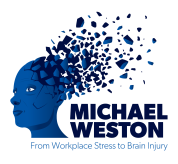Definition: Rehabilitation is a treatment or treatments designed to facilitate the process of recovery from injury, illness, or disease to as normal a condition as possible.
Purpose: The purpose of rehabilitation is to restore some or all of the patients physical, sensory, and mental capabilities that were lost due to injury, illness, or disease. Rehabilitation includes assisting the patient to compensate for deficits that cannot be reversed medically.
In October 2014, I was introduced to an Occupational Therapist (OT) who would conduct an assessment of me within both my work and home environments. Upon having completed this assessment, I was then provided with a structured rehabilitation plan. This was a milestone for me for it had now been 17 months since having my work incident which involved attending many medical tests and examinations but no sight of any rehabilitation going forward. My wife and I were so relieved that at last we had an experienced professional that would help me by providing me with a rehabilitation plan.
Whilst I was nervous to start this rehabilitation, I had a very positive and motivated mindset for as far as I was concerned this was going to make me return to normal. In addition to this, whilst I wasn’t being cocky I had made an assumption that I would work hard at this and get through it as if I was completing a Diploma or other such studies. As it turned out, I was very wrong to assume that this would be the same as any other studies I had completed?
The OT had explained to me from the outset that her role was to help improve my ability to perform tasks in my home and work environments. She would also help to develop, recover, or maintain daily living and work skills. In addition to this, assistance would be provided to improve reasoning abilities and to compensate for permanent loss of function. I am going to highlight this key word “COMPENSATE” for it is a word that means a whole lot more to me today than it did back then.
As time passed with each session, I would become quite frustrated with myself with my lack of ability to successfully complete a task. I would get extremely upset with myself and just keep pushing through until I would have a brain melt down. To make an attempt in explaining what a brain melt down is for me would be best explained through the words of my wife. My wife would say my voice would change in tone (like someone who has Asthma), I would start to slur words, mix up sentences and would be very fatigued. As a result of this, it would be imperative for me to rest or sleep in order to recover from the session that I had just completed.
I was to discover that it was extremely beneficial in providing my OT with regular feedback on how I would physically and mentally feel upon finishing each rehabilitation session. My OT explained that the fatigue is a result of me pushing through, trying hard to get through each session and trying to be successful overnight. Instead of trying to solve things as I had naturally prior to my incident, I now needed to find strategies and coping mechanisms to “COMPENSATE” for the capabilities that have either been lost in the interim or lost forever.
Once you can accept that things have changed, only then can you really function or participate in the rehabilitation in order to feel or understand the benefits. In short, it isn’t easy.
The rehabilitation varies to suit me as an individual. I have a varied range of rehabilitation tools that I utilize such as paper base through to computer based which include brain training, self awareness resources, self therapy resources, strategies to adapt / cope and the list goes on.
Many things that I read, listening to instructions, listening to a conversation either in the very present or within a time that is fairly recent I will regularly forget. The way I would describe this is I can only retain or absorb a limited amount of information coming in to my mind and unfortunately when I meet my quota I have to make a quick decision to either let the current information go (forget) and focus on any new information (absorb) or retain my focus on what was initially read or spoken with the probability that I will not be able to absorb any further new information. Whichever pathway I choose it will result in only a partial amount of information retained.
I now utilize visual tools such as post-it notes in order for me to remember things and remind me of things that need doing. I also use these to remind me of where I have put objects of importance which is only beneficial if the post-it-note is in a position that can be seen. Ha ha, talk about a comedy of errors! I sometimes make lite humor of my situation in saying to my wife that I require post-it-notes to remind me where I left my reminder post-it notes.
My need to utilize alarm clocks has become beneficial when the need arises to turn something off such as the hose topping up the pool to ensure the pool doesn’t overflow. Another example is my need to have a tiered alarm strategy for times where I have the oven alarm on for the roast however in addition I also require my wrist watch alarm on if I go outside. Most would just make a mental note of the time when going outside and the approximate time the alarm will go off for the roast to be checked however for me it falls off the radar. I’m happy to say I haven’t had too many burnt roasts using this new strategy.
In most cases I will forget things on a regular basis so the importance in having strategies in place such as visual aids (written lists, post-it notes, task plans) or noise aids (alarms) is very beneficial. Its ironic when I speak about this for during my first year of returning to work following my incident, I found the need to use many visual aids such as white boards, butchers paper and props to name a few which enabled me to remember and communicate without the need to talk too much. At the time I just didn’t know that it was a natural instinct for me to “COMPENSATE” for my reduced capacity.
Completing a task that can be quite complex for me now requires a plan which includes tools and resources in order to complete the task. This also includes a list of steps which form part of a process. Whilst similar tools (JHA, JSA etc.) are utilized on a regular basis within the mining industry that I have worked in, it wouldn’t be something that I would usually complete at home under normal circumstances for a simple task however I consider many of these tasks as being complex that are relevant to my new level of capacity. The consequences of me not completing a plan prior to completing a task usually results in me going way off track and at times lead to my safety and wellbeing at risk. I shall share some of these occasions in my next post “Brain Injured Moments”.
With my attention span being quite low these days it is important that such strategies are in place. One of the reasons as to why I go off track is that my mind gets distracted and wonders off to something else that I have either seen or heard. It sounds like an easy solution doesn’t it, create a plan, a list, stick to it, do not bypass this under any circumstances unless you review your list or plan prior to continuing. This works sometimes however my mind can be so overpowering that a distraction can attract my mind into deep thought and therefore no plan or list exists. Its very hard for me to explain and to be honest I don’t know if I would have been able to grasp the context myself when my brain was in a normal operating capacity prior to my incident. Anyway, my OT again has provided me with the tools, the training and the support to keep at working on such strategies which I am grateful for.
Other rehabilitation exercises that I frequent on a daily / weekly basis are Brain Training websites such as Brain HQ and Lumosity which contribute to hopefully retraining my brain. They can be quite demanding and difficult for me however I constantly remind myself that anything worth fighting for rarely comes easy so I continue to work hard at these. I find this area of rehabilitation to be like a double edged sword for I have a low attention span and experience high levels of anxiety if placed under any form of time limit. My work ethic tells me to push through when things get difficult which results in brain drain (mental fatigue).
Whilst I have provided you with a brief snapshot of this type of rehabilitation, it is very much a long term solution with small installments.

